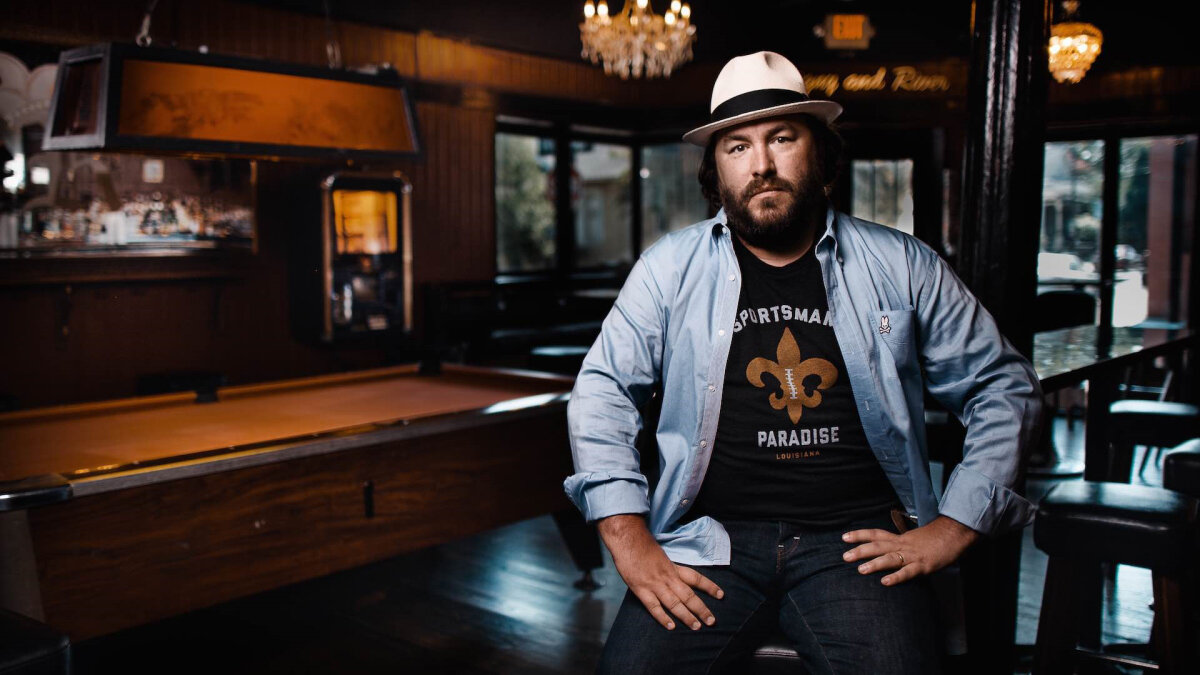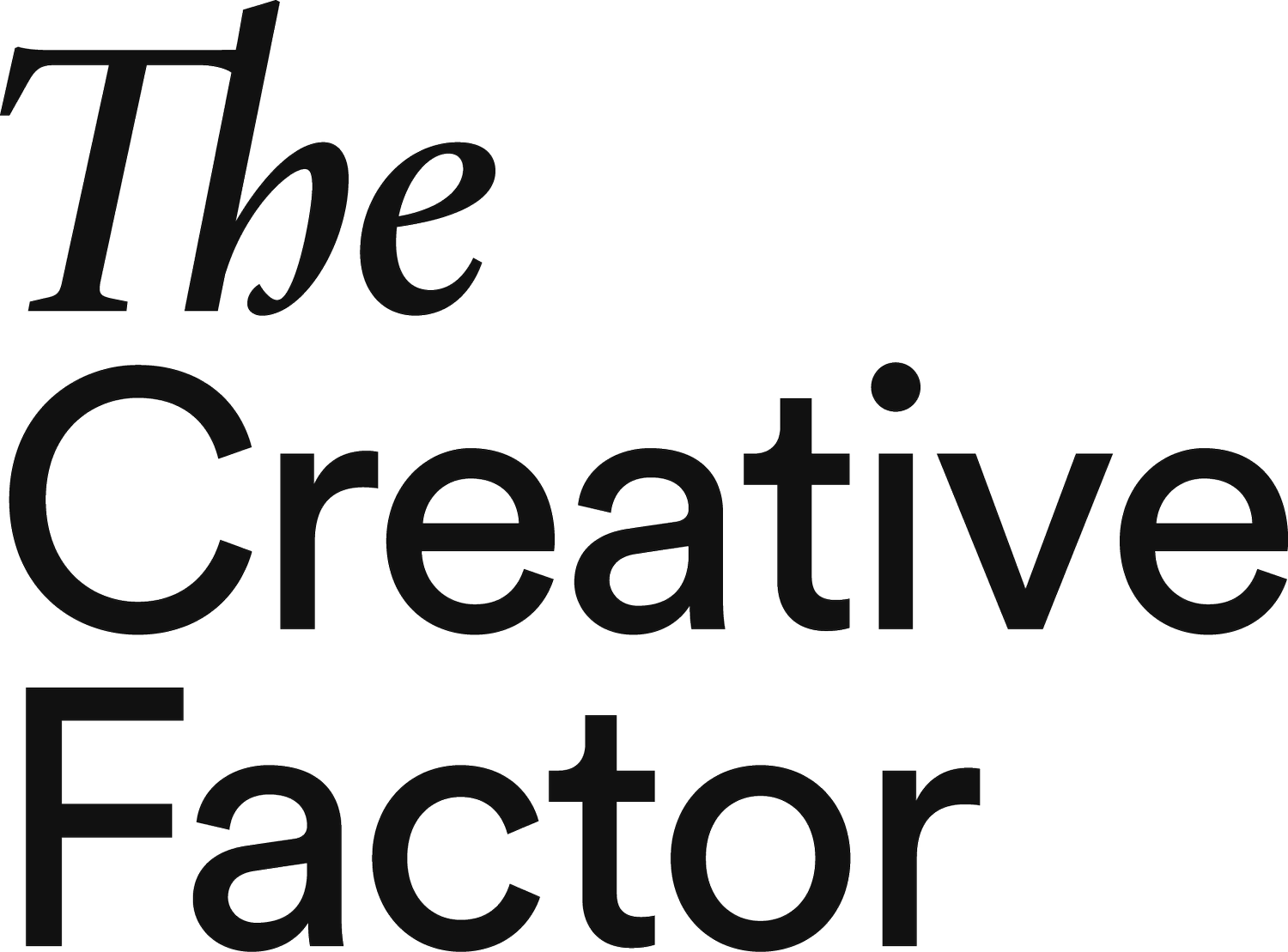
Wright Thompson Earned It Today
When the Southern writer creates, he feels all the feels—passion, obsession, struggle, self-belief. It’s how making something worthwhile should be.
/ NOVEMBER 04, 2020
/ FIRST PERSON
Wright Thompson is a grinder. The Southern writer gets after it. This morning Thompson began working at 5:30 a.m. He poured his coffee—black and gasoline strong—walked downstairs to his Oxford, Mississippi home office, and sat in an ergonomically-friendly office chair that looks like he stole it from the set of Office Space. Article clippings and reporting trip memorabilia around the room remind him he’s done this before. “Everything is designed to manage the crashing waves of insecurity that come along with doing this for a living,” says Thompson, who puts in an honest day’s effort before lunch.
These aren’t the words you expect to hear from Wright Thompson, one of ESPN’s top writers. He’s at the level where it doesn’t really matter what he writes about, it’s worth visiting. You don’t even have to give a hoot about bourbon to love his new book, Pappyland: A Story of Family, Fine Bourbon, and the Things That Last. But here’s what you should know: Tomorrow, Thompson will wake up early and create. And the next day. And the next. “The question I want to always be asking myself is, Are you earning it today?” he says.
No matter what craft we practice, that’s a question we can all pose come quitting time: Did we display resolve, grit, perseverance, and commitment to get the best out of ourselves? Here, Thompson discusses his pressure-fueled drive, the fine line between struggle and self-belief, and how the most compelling things we create come from living a curious life.
…
When you think about your creative self, which of these four words do you most identify with: passion, obsession, struggle, or self-belief?
All four, in groupings of two as sort of the light and dark of the same impulse. There's a fine line between passion and obsession—I go way down the rabbit hole on things. And you can struggle to get to a place of self-belief. The hardest thing in the world is to convince yourself that what you make has any purpose or value.
I wrote Pappyland without an outline, which I never do. I decided that, even if this is terrible and I have to completely start over, I am going to take this creative journey where I think it wants to go and see what happens. I wrote a third of the book before I showed it to anyone. I sent it to my editor and thought, His head might explode. He really liked it, and it allowed me to move out of the struggle and move into self-belief.
You’ve described yourself as a grinder. How does that mentality influence how you create?
It's the entire thing. The world’s greatest fly fishing rod maker once told me that “Zen is a butt in a seat.” That’s 100% true. The myth of talent is interesting because talent is like a sugar rush. The thing you need is the long, sustained grind and the highway is littered with super-talented people who just weren't willing to pay the price. You have to stay on it day after day.
In Pappyland, you wrote about the family behind the world-renowned Pappy Van Winkle bourbon. What did you learn from current family patriarch Julian Van Winkle III about making something truly extraordinary?
Julian Van Winkle III has turned down more money than maybe anyone I've ever met, to protect the main thing. The main thing is the main thing. The inheritance he has to uphold is that he will take no paydays that he would regret on his deathbed. To be so traditional—he has a little punk rock in him that I like.
How do you think he defines success?
There's a part in the book where I asked if he thought his dad would be proud of him. He said yes, and he also said his dad and grandfather would love that the standard for greatness in the bourbon world are their aged wheat bourbons. Julian sees that his family was ahead of their time. They had this idea, and he escorted that idea to fruition. He takes an incredible amount of pride in that.
You are at a level far behind what most in your field can do. Why do you still feel pressure?
I'm a pleaser. Always have been. Standard child of an alcoholic parent 101. I don't want to let people down—especially where I work—who have invested a tremendous amount of trust in me. I want to continually prove myself worthy. Sounds silly to say it out loud, and a little pathetic. But I want to be worthy of their faith. You don’t ever want to be the guy who is coasting on reputation. I hate the idea that someone will be disappointed.
How do you know when a piece is done?
When they pry it from my fingers. I need to be told to stop. There was a substantive thing that I reported in the Tiger Words story that I found out while the story was at proofs the day it closed. I reported that thing until it literally went to the printer. That’s what I mean, to the wire. It’s the only way to deal with the panic.
What might you go back and tell your younger self about the road you’ve taken?
The best advice I have is not what I would want my younger self to have. I like that guy broken and hungry. That has worked out well for future me.
I would tell him that these things mean everything and they don’t mean anything at all. My own self-worth is not as tied to the success of the latest project as it once was. It still is, to the degree I’d like to get better at it. There is some daylight between those things now, which I think is good and healthy. But I would not want younger me to have that daylight.
What about your creativity that we haven't discussed, is important to share?
Today, I was talking about how we’re running out of our ability to do our jobs and not travel. It isn't so much that you can't be on the phone. It’s less the ability to report the story in front of you that is hard, but it’s the ability to find new stories to refill the tank. To be out in the world and see something interesting that sparks a thought that leads to some piece of research that becomes a story.
That’s why I find the brainstorm meeting absurd. Everybody is looking for ideas all the time, like breathing, or they are not doing it at all. If you have to come in at a set time to come up with ideas, I don’t want to be anywhere near you. I want to be around people who are curious citizens of the world who want to know everything about everything.
What do you want to know more about right now?
I’ve gotten crazy into the physics of catching big fish. If you want to go down a rabbit hole, go on YouTube and search for “Marlin grander.” A “grander” is what they call a Marlin that is 1,000 pounds. It’s the craziest sh*t you’ve ever seen in your life. I don’t know if it’s a story. I don’t know if it’s a profile of somebody. I don’t know. I must have watched 200 of these videos. It’s crazy town.
So what’s the biggest trick to bringing a 1,000-pound Marlin?
There is technique, then touristy brute force. These things are enormous. When you hear the line go out, it’s like a submarine. Like what’s going to come out of the water? Red October? I am fascinated by the human urge to catch them. I mean, why?
You brought up curiosity. That’s foundational to making anything worthwhile.
The people who I know who are really good at this don’t turn it on and off for work. The people I admire don’t ever turn it off because it can’t be turned off. The stories are the accidental byproduct of them living their lives.
If you’d like to read more from The Creative Factor—such as how one Chief Creative Officer used AI to crack an infamous jailbreak case or how to develop a creative partnership where the hopes and dreams rhyme, subscribe to our newsletter.
Cover photo of Wright Thompson courtesy of Penguin Press.
Matt McCue is the co-founder of Creative Factor. He lives in New York City, but is willing to travel long distances for a good meal.


